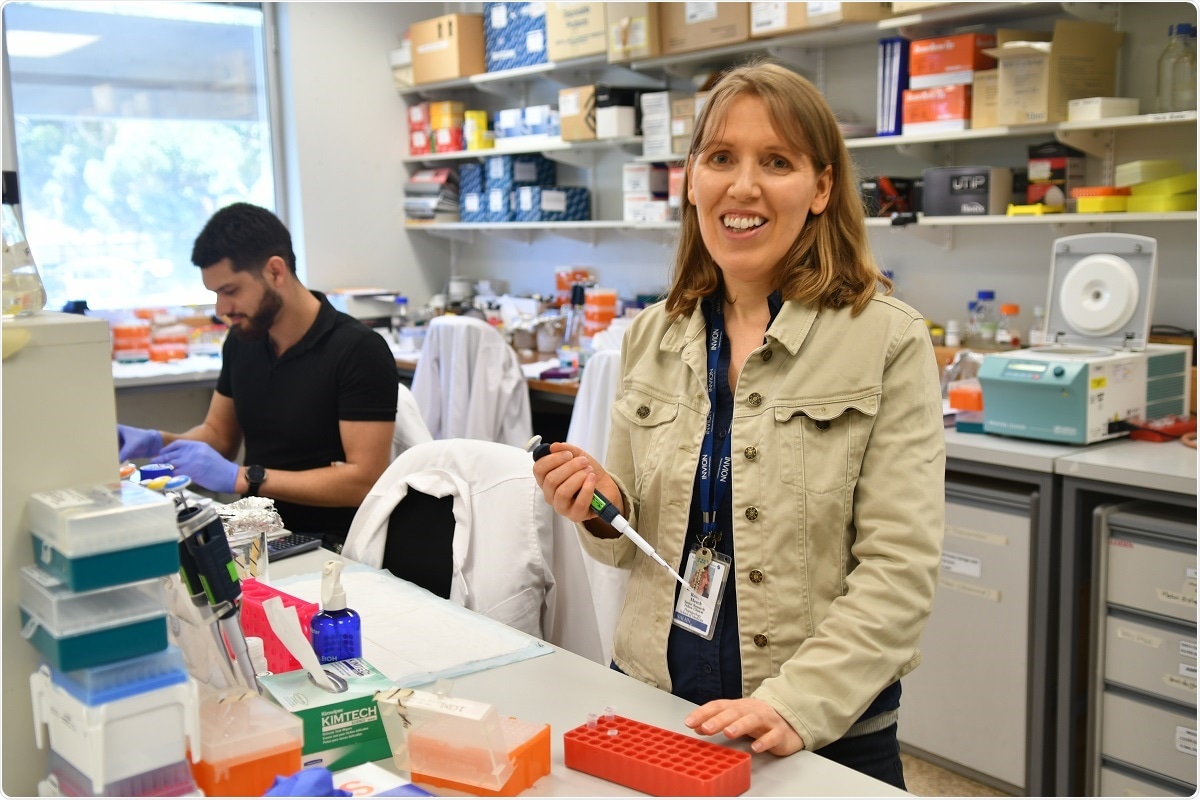Examining gut health from a different angle, Flinders University’s Associate Professor Robyn Meech is looking at what can trigger colon cancer – and she believes bile acids may provide a significant piece of the puzzle.

Image Credit: Flinders University
Associate Professor Meech recently received Australian Research Council Discovery funding to investigate this under-explored area of gut and intestinal health, and aims to answer wide-ranging questions about the functions of bile acids in the gut stem cell niche.
This new research, which will commence at Flinders University in early 2021, approaches gut health from a different angle thanks to Associate Professor Meech having worked in disparate fields, threading her lines of interest between stem cell research, pharmacology and toxicology.
Building bridges between the scientific disciplines can help researchers address more complex health problems more effectively.”
Robyn Meech, Associate Professor, Flinders University
The gut is the most rapidly renewing tissue in the body, driven by a highly active stem cell niche, and recent studies have revealed that the amount of bile in the intestinal tract determines stem cell behavior in the gut.
Bile acids are secreted from the liver into the gut to solubilize dietary fats, helping us to extract nutrients that our body needs. However, they are also signalling molecules that are critical in modulating intestinal gut health.
It’s a surprisingly complex area to navigate, with both primary and secondary bile acids that form and function differently and have the capacity to act as a disruptive force in gut health.
The ARC Discovery Grant – Signalling in the crypt: a novel metabolic pathway in intestinal stem cells (DP210103065) – is a three-year, $472,496 project that focuses on a novel enzyme pathway that acts as a modifier of bile acids in intestinal stem cells.
Crypts are canyons within the regularly folded surface of the gut lining where intestinal stem cells reside. As stem cells divide, they move up from the base of the crypt to the surface, while also undergoing differentiation to form mature cells that carry out absorptive and defensive functions of the gut. Constant renewal of the gut surface is essential because of the wear and tear associated with breaking down food, extracting nutrients, and removing toxins and waste.
However, the crypt is also where carcinogenic cells can form if processes go wrong – possibly leading to cancer. This can occur when the balance of cell division and differentiation is disrupted, and when stem cells become damaged.
Bile acid imbalance, which can be triggered by a high-fat or obesogenic diet, and by disruption of the gut microbiome, provides a mechanistic link between these risk factors and the development of colon cancer. Specifically, altered bile acid ratios can disrupt stem cell growth and differentiation, and high levels of specific bile acids are toxic to cells in the crypt.
Associate Professor Meech’s previous work in pharmacology and toxicology has focused on an enzyme pathway that mediates glycosylation of small molecules, which results in their detoxification and elimination from the body.
The new ARC-funded project was spurred by her team’s discovery that this pathway also glycosylates bile acids within the intestinal crypt, altering exposure of intestinal stem cells to these potentially toxic molecules. Using a variety of approaches including culturing intestinal stem cells as organoids (known as mini-guts), and determining how perturbation of bile acid glycosylation affects cell behavior, metabolism and signalling, her group aims to understand its role in preventing bile acid imbalance.
We are addressing a fundamental gap in our understanding of how bile acids are controlled within the stem cell niche. The overall aim of the project is to define the role of a novel enzyme called UGT8 in controlling intestinal stem cell responses to bile acids, and in particular, how it affects key signalling pathways that control intestinal homeostasis and renewal. We expect to gain important new insights into how the levels of different bile acids are kept in balance, and how this in turn helps coordinate the balance between growth and differentiation of cells in the crypt”.
Robyn Meech
Given that overgrowth of stem cells can lead to cancer, but conversely, too little growth can compromise replenishment and repair of the gut, a major benefit of the new studies is the potential to ‘reset’ imbalances and restore gut health.
As Chief Investigator for the project, Associate Professor Meech will be working with Associate Professor Michael Downes at the Salk Institute of Biological Studies in California, representing an important trans-national collaboration that integrates research strengths.
“This represents a fantastic convergence between their recent work into understanding how intestinal turnover is controlled by bile acids, and our new ideas about enzymatic control of the bile acid signal in crypts,” says Associate Professor Meech. “Our international collaboration not only links different research areas, but also brings together multidisciplinary expertise that increases our efficiency and cost-effectiveness.
“The results of this research should enable the development of novel approaches to intervene where bile acid metabolism, and hence gut turnover, is dysregulated - for example by dietary factors or disruption of the microbiome.”